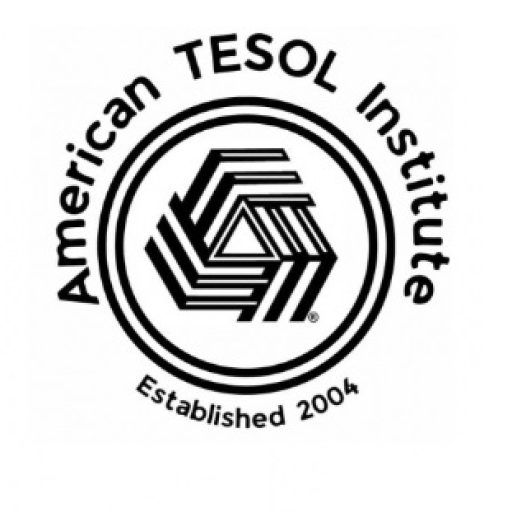As globalization continues to foster interconnectedness, American English has emerged as a prominent language in business, education, media, and diplomacy. Recognizing this, the United States has implemented various policies and programs aimed at promoting the teaching of American English worldwide. These efforts are not only about language but also about building cross-cultural understanding, supporting international development, and enhancing U.S. relations with countries around the globe. This article explores key U.S. policies and initiatives, how they support English teaching abroad, and their impact on global education.
1. The Importance of Promoting American English
The U.S. government considers American English education an important tool for diplomacy and cultural exchange. English proficiency facilitates trade, tourism, and international cooperation, and countries with high levels of English skills often enjoy improved economic opportunities. By promoting American English, the U.S. aims to empower individuals, foster mutual understanding, and support global stability.
Fun Fact: Approximately 1.5 billion people worldwide speak English, with over 375 million of them speaking it as a first language. The growing demand for English teachers across continents has led to the establishment of numerous American English programs to meet the needs of global learners.
2. The Role of the U.S. Department of State’s English Language Programs
One of the most impactful initiatives is the U.S. Department of State’s English Language Programs, which works in over 130 countries to promote English language learning and American cultural understanding. This program sends highly qualified U.S. English Language Fellows, Specialists, and educators abroad to train teachers, develop language programs, and teach English directly in classrooms worldwide.
The Department of State’s English Language Programs include:
- English Language Fellows Program: Deploys U.S. educators abroad for 10-month assignments to support educational programs, develop curricula, and conduct teacher training workshops.
- English Language Specialists Program: Sends specialists on short-term assignments to conduct specific projects, such as setting up new language programs or leading conferences.
- Online Professional English Network (OPEN): Provides online English teaching resources and training for teachers around the world, making it possible to expand learning access in regions where travel may not be feasible.
Fun Fact: Since its inception, the English Language Fellows Program has deployed over 4,000 fellows in more than 80 countries, impacting thousands of students and educators globally.
3. Promoting English Language Education through U.S. Embassies and Consulates
American embassies and consulates play an essential role in promoting English language education and cultural exchange. They regularly sponsor events, seminars, and programs designed to support English teaching and provide resources for language learners. Many embassies offer English Access Microscholarship Programs, which provide free English instruction to economically disadvantaged youth, helping them to gain valuable language skills for educational and professional opportunities.
Example Initiatives:
- American Corners and English Resource Centers: U.S. embassies often establish resource centers equipped with books, learning materials, and digital resources for English learners. These centers are open to the public, fostering a sense of community and access to resources.
- Cultural Diplomacy and Language Scholarships: Embassies provide grants and scholarships for students to study English, and many host programs that include storytelling sessions, movie screenings, and American holiday celebrations to immerse learners in American culture.
Fun Fact: The English Access Microscholarship Program has helped over 100,000 students worldwide gain English skills since it started in 2004, equipping young people for success in the global economy.
4. U.S. Government Funding for English Language Education Programs
The U.S. Congress allocates funding each year to support English language education as part of foreign assistance and public diplomacy budgets. These funds support the Department of State’s English Language Programs, as well as educational exchange initiatives managed by the Bureau of Educational and Cultural Affairs (ECA). Grants are provided to both U.S. and international institutions to develop language education programs, teacher training workshops, and the distribution of American English resources worldwide.
Key Funding Programs:
- Fulbright English Teaching Assistant (ETA) Program: Through the Fulbright ETA program, recent U.S. college graduates are sent abroad to assist local English teachers in classrooms and provide American cultural insights.
- ECA Grants for Language and Cultural Programs: ECA offers grants to organizations and institutions that run language and cultural exchange programs, enabling wider access to English language education and fostering cross-cultural communication.
Fun Fact: The Fulbright ETA Program, launched in 1946, now operates in more than 80 countries, and has become one of the most well-known cultural exchange programs worldwide, with alumni that include notable leaders and scholars.
5. Digital Resources and the Role of Technology in Language Learning
Recognizing the digital age’s influence, the U.S. government has also invested in providing online resources and technology to support English language learning globally. The Bureau of Educational and Cultural Affairs offers free resources through platforms like American English, which includes educational materials, lesson plans, games, and mobile apps for students and teachers.
Through initiatives such as the Online Professional English Network (OPEN), learners and teachers can participate in virtual courses on topics like English for business and academic purposes, TESOL methodologies, and critical thinking. Technology has become a bridge for connecting learners and teachers in countries where physical travel is limited.
Fun Fact: The American English platform includes an interactive “Trace Effects” video game that helps students practice their English skills in a fun, immersive environment while learning about American culture.
6. The Impact of American English Programs on Global Education
U.S. policies promoting American English education worldwide have had a significant impact on millions of students, educators, and communities. English proficiency gained through these programs opens doors to academic scholarships, professional careers, and international exchange opportunities for students globally. Additionally, local English teachers who participate in these programs receive valuable training, helping to build sustainable language education systems in their countries.
By promoting American English, the United States strengthens its diplomatic ties, supports educational development, and fosters mutual understanding across borders. TESOL-certified teachers who participate in these programs not only advance language skills but also become ambassadors of cultural exchange and lifelong learning.
Conclusion
The United States’ policies and programs promoting American English education worldwide demonstrate the country’s commitment to fostering cross-cultural exchange, improving global access to English proficiency, and strengthening international relations. Through a combination of in-person teaching assignments, embassy-led initiatives, government funding, and digital resources, the U.S. supports English language learning as a bridge for diplomacy and opportunity.
TESOL teachers who work within these programs experience a rewarding journey, gaining firsthand exposure to diverse cultures while contributing to a greater global community. By joining these efforts, TESOL educators not only teach English but also play a pivotal role in building international understanding and advancing educational access worldwide.



